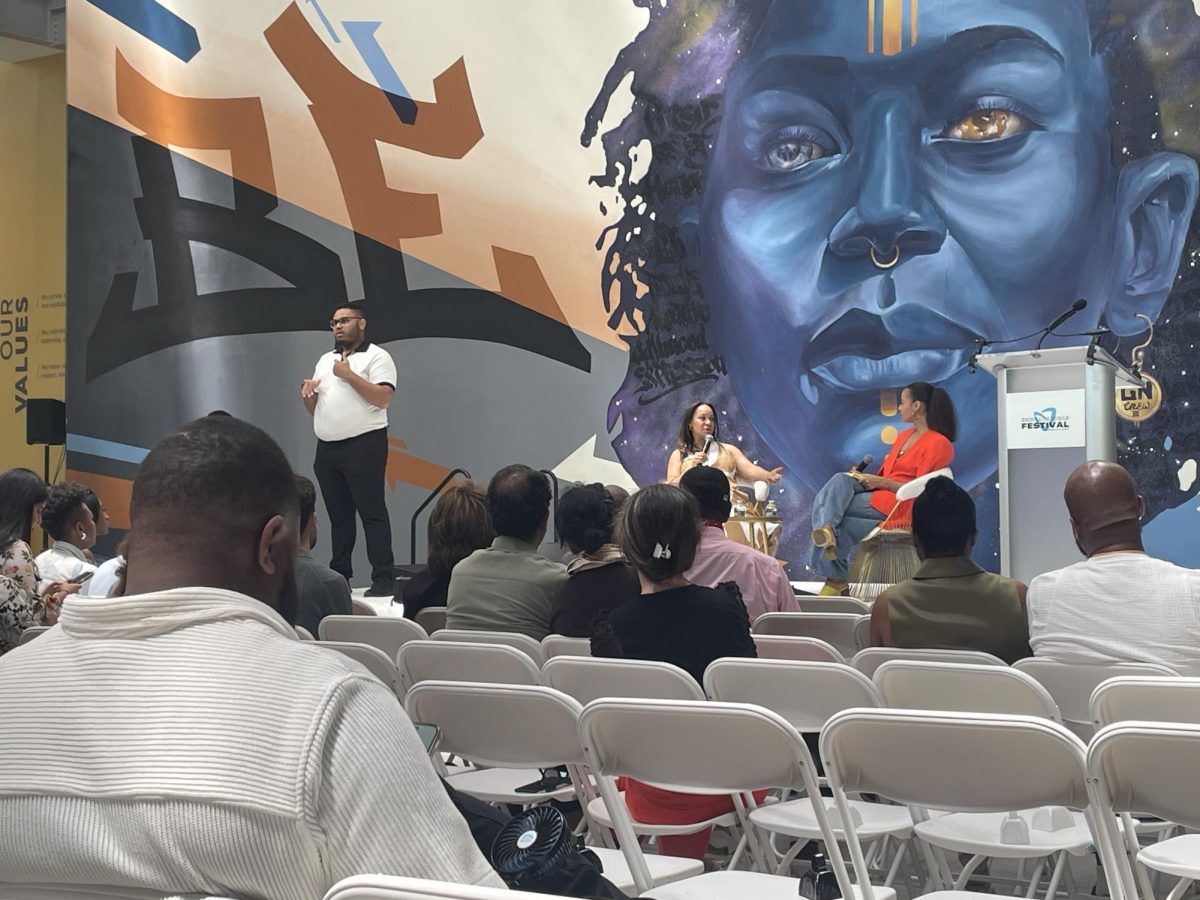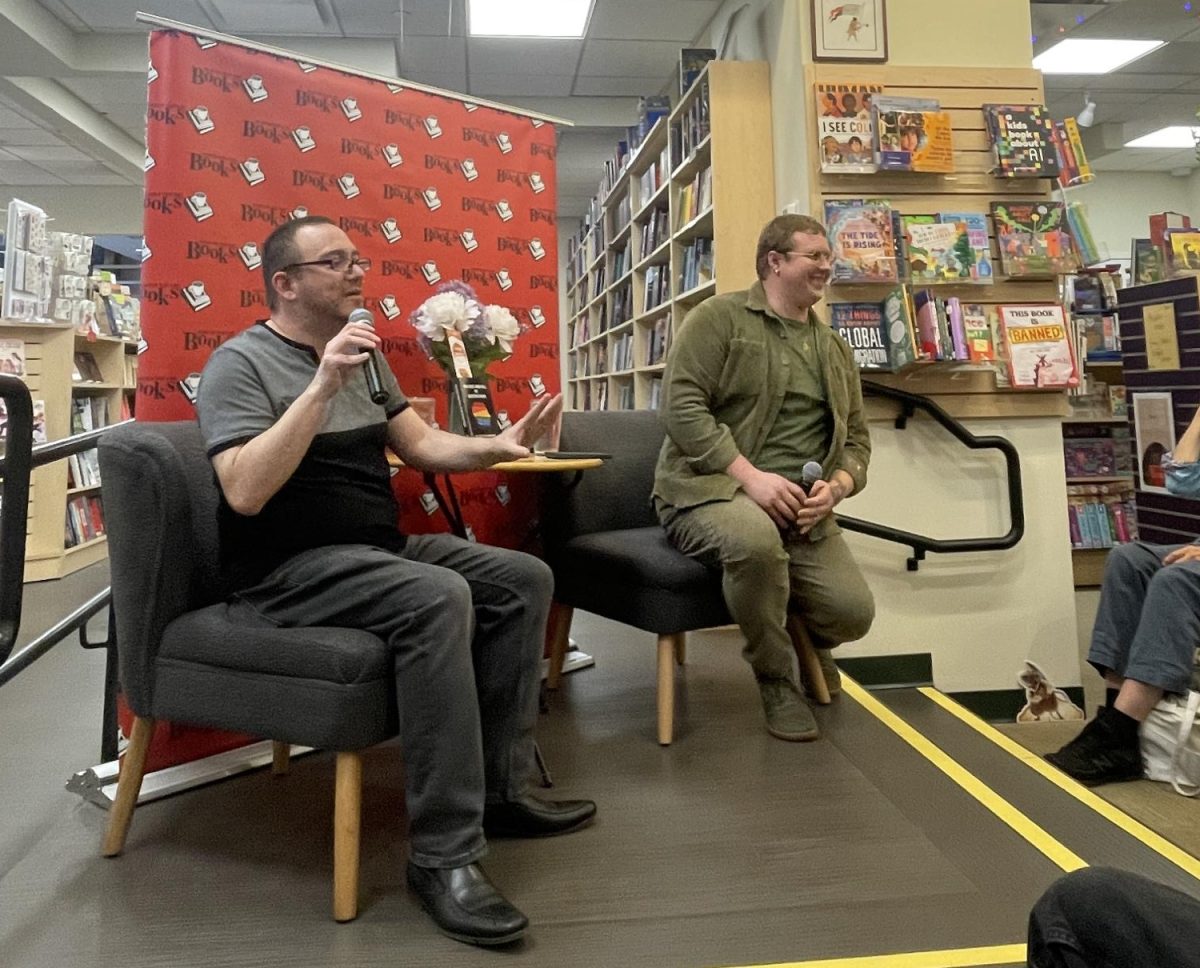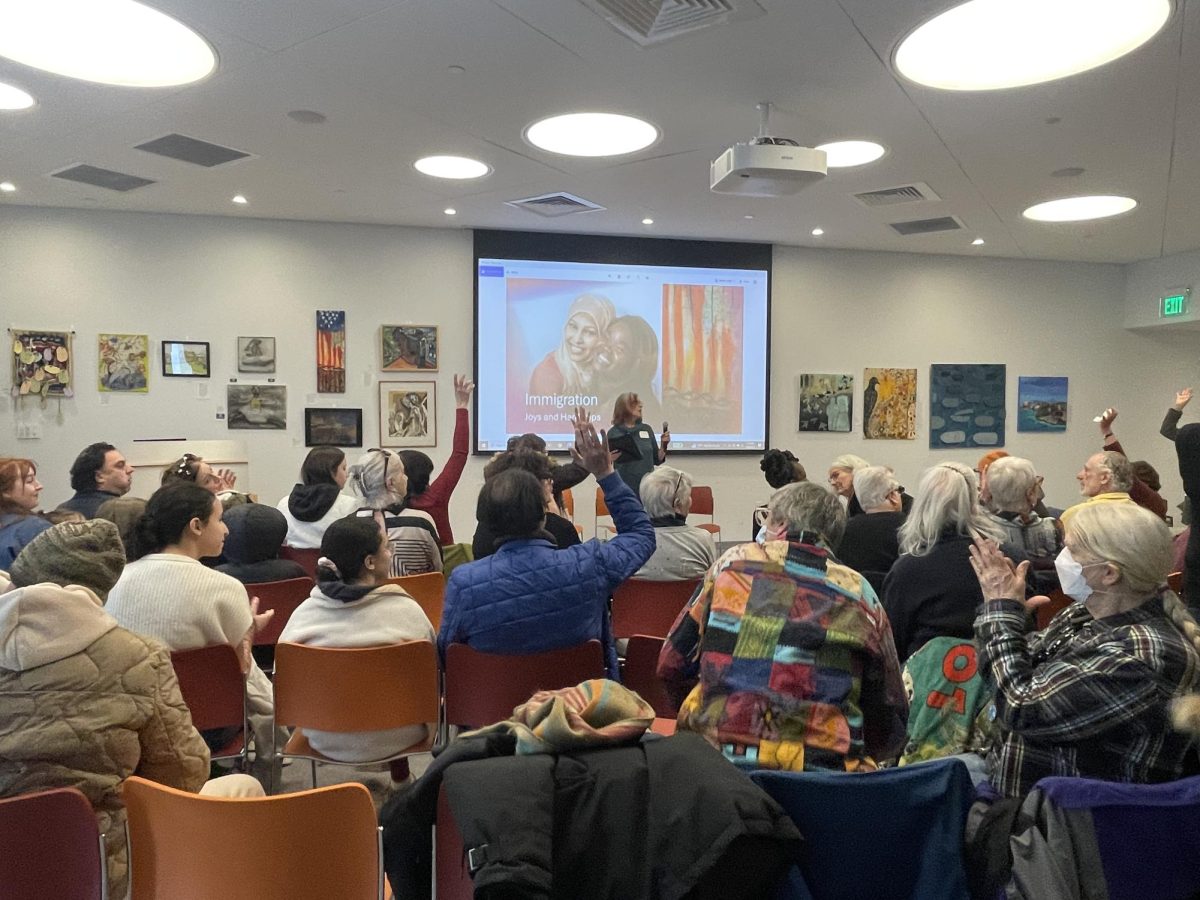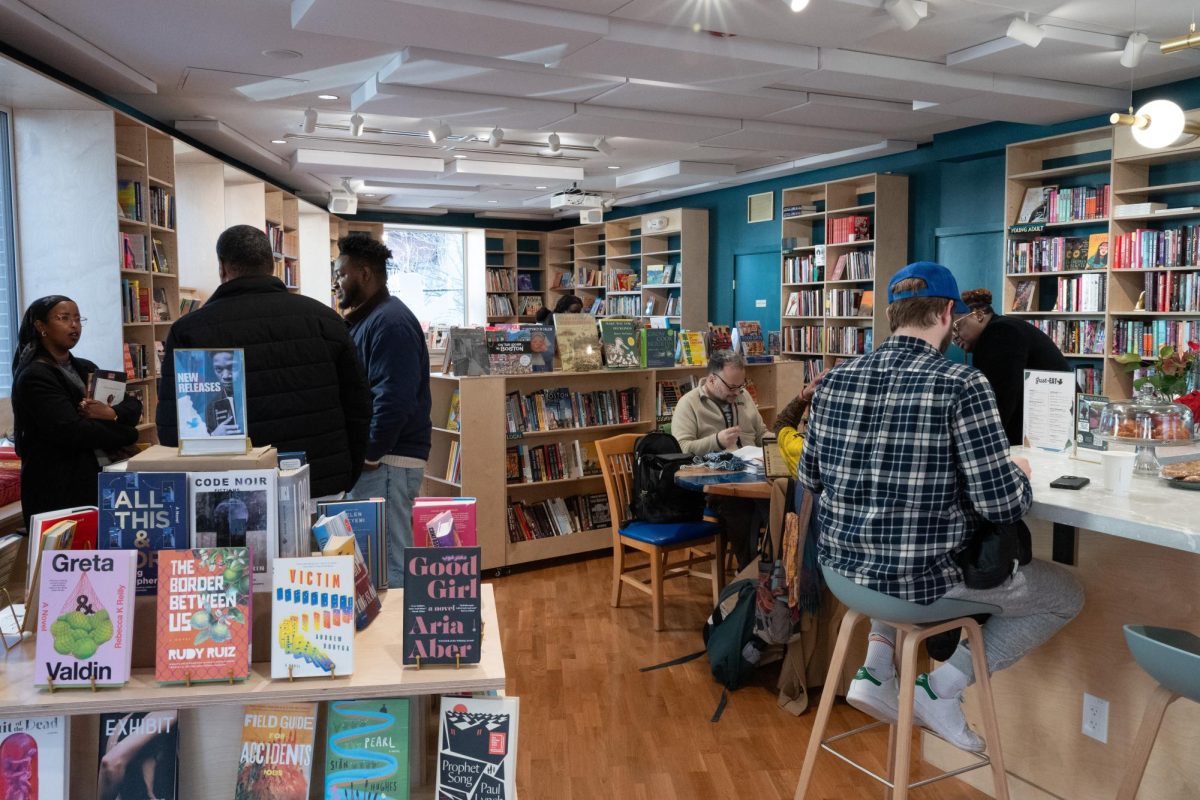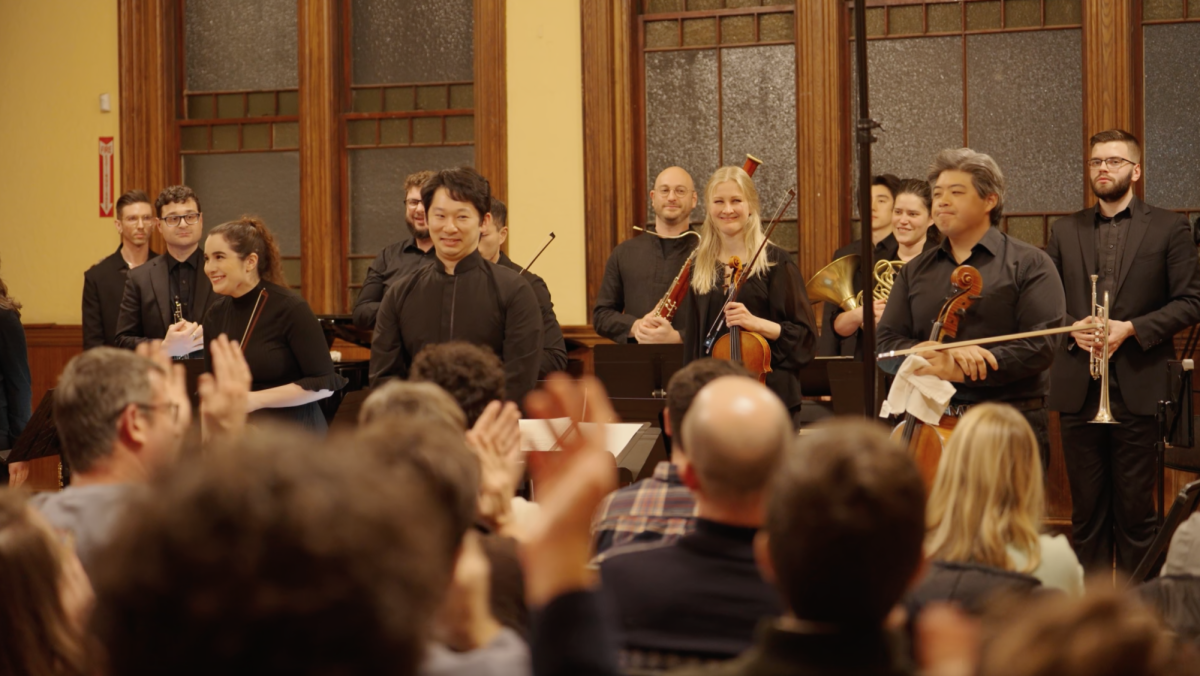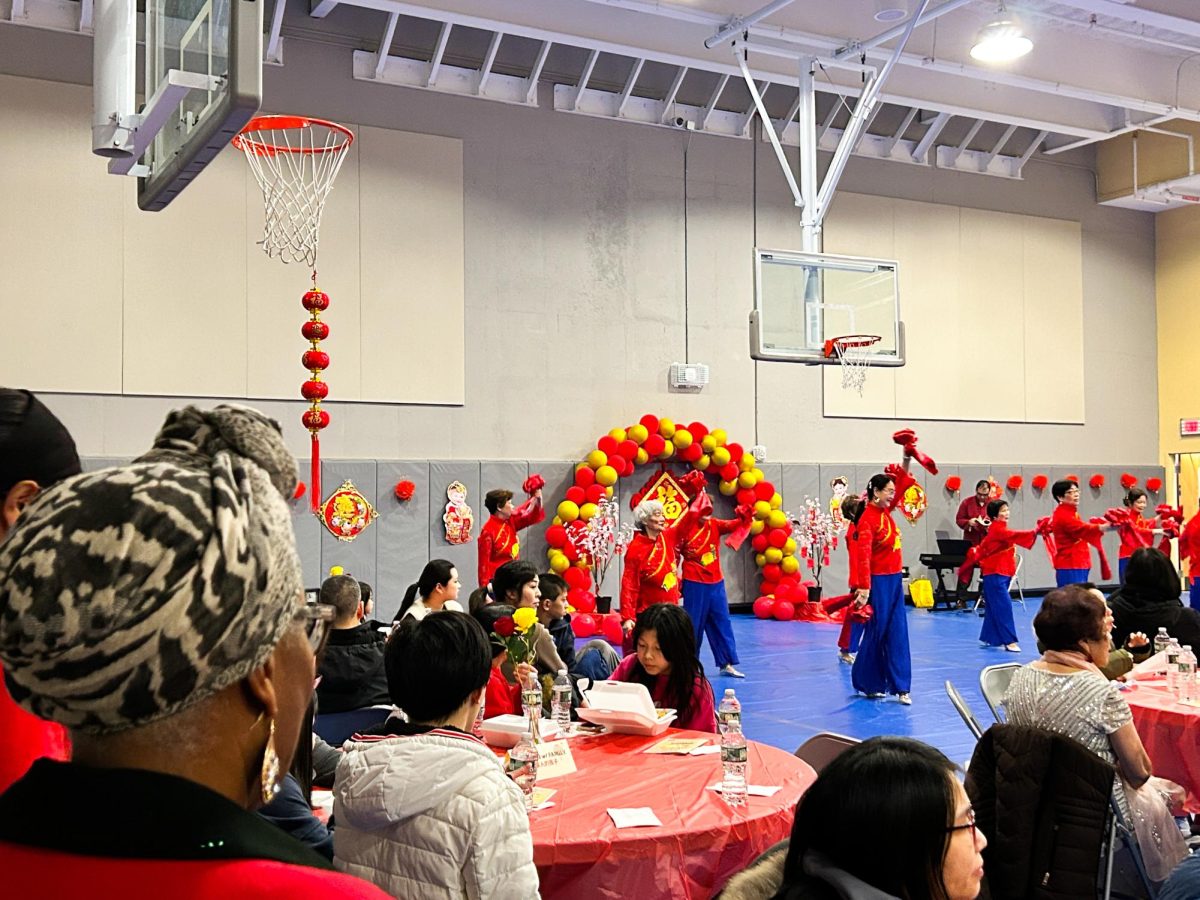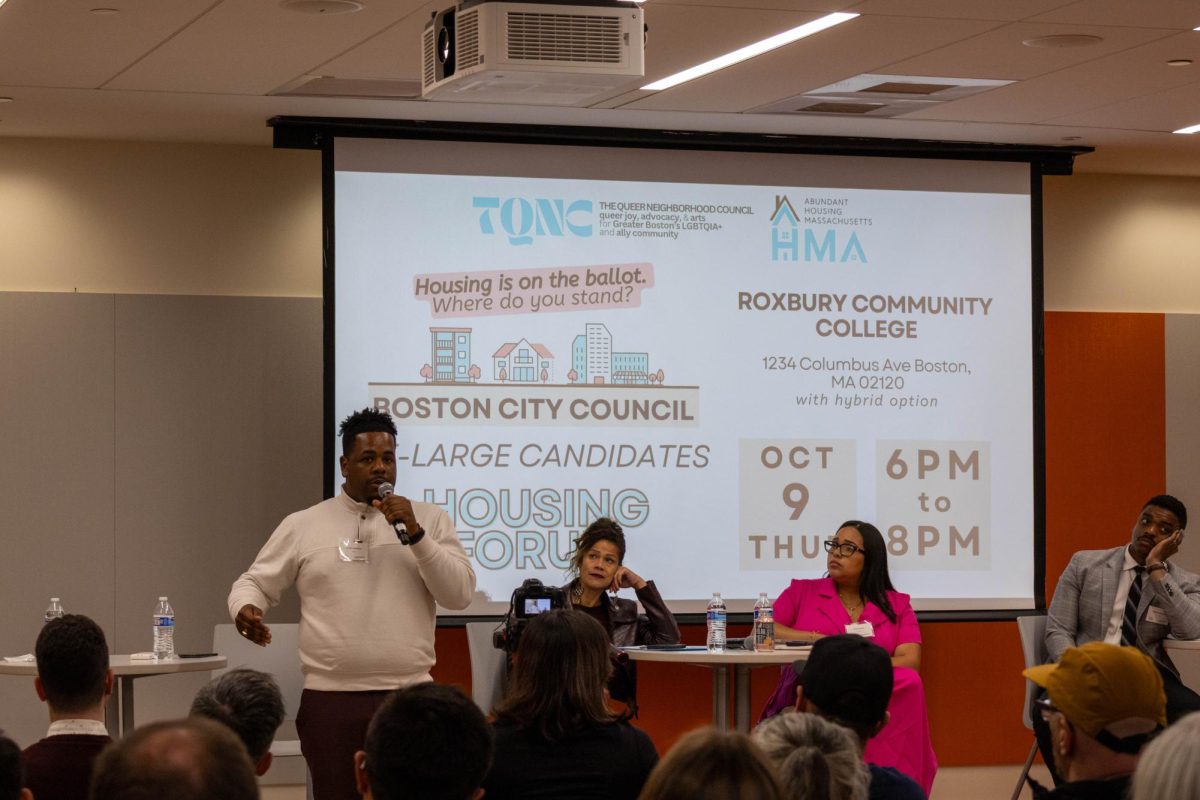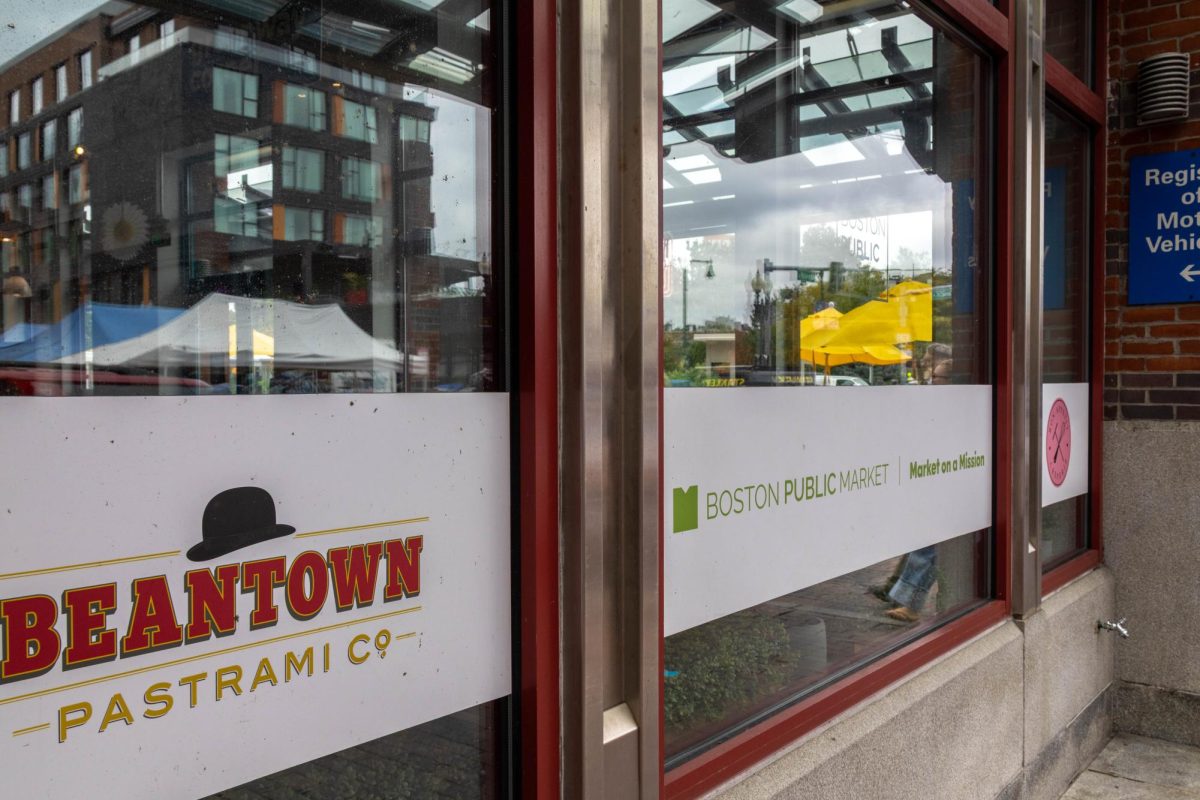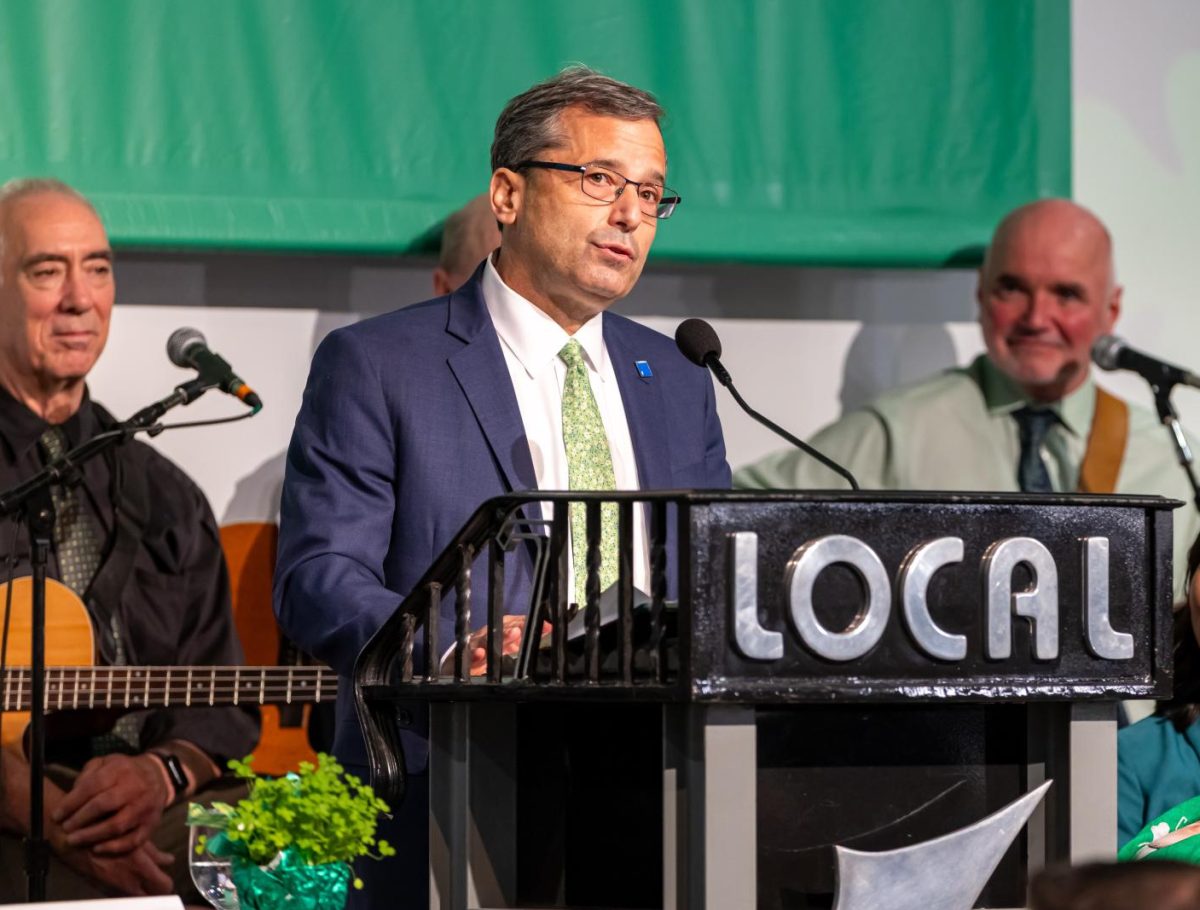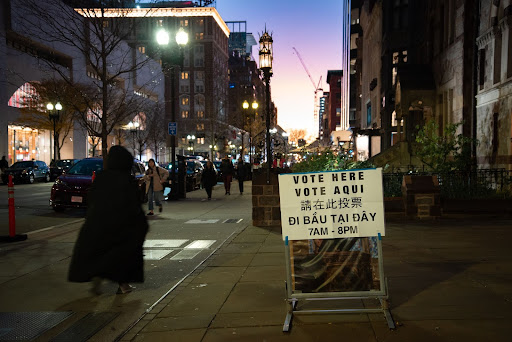Being an entrepreneur comes with challenges, and it’s especially difficult for people of color, said The Boston Globe’s Jeneé Osterheldt in a conversation with Morgan DeBaun, co-founder and chief executive officer of Blavity Inc., a Black-owned media company targeted toward Black millennial consumers. But in Debaun’s new self-help book “Rewrite Your Rules,” published in April, she makes the case that with a few minor lifestyle changes, success could be in reach for anyone.
DeBaun spoke at the Embrace Ideas festival on Jun. 20 on the campus of Massachusetts College of Art and Design. Put on by Embrace Boston, a nonprofit focused on anti-racism, the festival was part of the organization’s Juneteenth celebrations.
Originally from St. Louis, Missouri, DeBaun worked at the financial software company Intuit for several years but said she found that “no one was building products with us in mind.”
“We will never be their primary customer, their target user,” she said. “I wanna solve a problem for a Black girl living in Boston.”
That compelled DeBaun to launch Blavity with two co-founders in 2014. The company has raised millions in venture capital funding since its launch.
But DeBaun found that in venture capital settings, it was harder for her to fundraise than it was for her white male peers. The difficult funding landscape brought DeBaun to a crossroads: “How do I reconcile doing what I love,” she said, while “still trying to do the right thing?”
Through trial and error, DeBaun found ways of achieving success and freedom while not burning out. This means “trying to think of money as a tool,” she said. “What are the things I can do with the cash I have that allow me to still live a life of freedom?”
“Freedom for me,” she said, “means I don’t really do my laundry that much.” DeBaun said she prioritizes items in the “high joy, low cost area” of her life.
Osterheldt asked DeBaun how she copes with the uncertainty of running a media business in the current economic environment.
“Why are you in it if you think it’s dying?” Osterheldt said, echoing a sentiment she said she’s heard herself.
“I ask myself this every quarter,” DeBaun said. For her, it’s all about being “a platform for people who sometimes are overlooked,” she said. “It means empowering creatives.”
Osterheldt asked DeBaun what advice she would give to people who end up working with and for their friends.The success of working with friends depends on communication, DeBaun said. That requires asking every employee, “What do you need to be happy and to do your best work for this company?” she said. “And how much time do we have [with you]?”
When it came time for one of her cofounders to leave, DeBaun said, that was an easy decision to support. Running the company was DeBaun’s way of pursuing her goals, but it’s hard to build wealth when you’re on that path.
Osterheldt asked DeBaun how she prioritized self care and work-life balance as a founder.
“I think it’s very important to honor the season that you’re in,” DeBaun said. DeBaun is six months pregnant, and finds that this “is a season of life where I am required to prioritize my health” because “It impacts my family and it impacts this new human that I’m bringing into the world,” she said.
DeBaun referenced what she called the “purpose principle,” she said. The purpose principle essentially means, “What is your ‘why’?”
For DeBaun, she said her purpose was to create systems and platforms for Black people to feel more joy “and also to make money while living that life,” she said. That purpose remains steady, she said, but she has to constantly reevaluate whether the things in her life are aligned with that purpose.
“What makes your life a beautiful resistance?” Osterheldt said, referring to the title of her own Globe column.
“When I think about resistance,” DeBaun said, “I think about going against the grain. A big part of that is changing her “inputs,” she said, or the information she takes in, whether by having art by Black artists on her walls or choosing how she spends her time and the people she wants to help.
“I think that we all need to change our inputs,” she said, referring to the internet. “It’s given us a lot of power” to find audiences and find each other, she said, but “it is also a place of great distraction. These algorithms are designed to be inputs that you didn’t necessarily ask for. And that’s really dangerous.”
Osterheldt asked DeBaun about how she creates space for people to dream amid an anti-DEI federal government. She shared how Blavity’s content had given her refuge while working in a predominantly white newsroom.
“Y’all gave us permission to dream,” Osterheldt said, adding that seeing media “by us, for us” meant so much to her at that time.
DeBaun talked about how seeing the 2014 murder of teenager Mike Brown by police officers made her want to leave majority-white corporate spaces. “I was sitting in a cubicle in San Francisco after Mike Brown, and the people around me were asking ‘what’s for lunch,’” she said. “They just were not seeing what I was seeing.”
In an interview after the panel, Lynn Thibault, a community relations staffer at the Isabella Stewart Gardner Museum, said that the event was inspiring from a professional and a personal perspective.
In her free time, Thibault runs a group for BIPOC cultural organizers called “Unabridged.”
“I feel reinvigorated again,” Thibault said, “not only in my own personal artistry, to like, collaborate with community centers and create programs within our community, and also even be part of where, you know, we’re really on an initiative to get folks in the door and to be that solace. It’s great that it’s aligned to my personal mission and also the work that I’m doing at the moment.”
In an interview after the event, Osterheldt echoed that sentiment. “I love being in a place where I’m safe enough to be vulnerable to dream,” she said.
While Embrace Boston’s annual festival is about “accelerating Black futures and Black history,” Osterheldt said, it’s still “not exclusively for us. It’s for everybody.”
The event reminded her of “how important it is for us to be communicating with everyone across communities,” she said, and “across neighborhoods, about collective culture change and collective humanity.”


